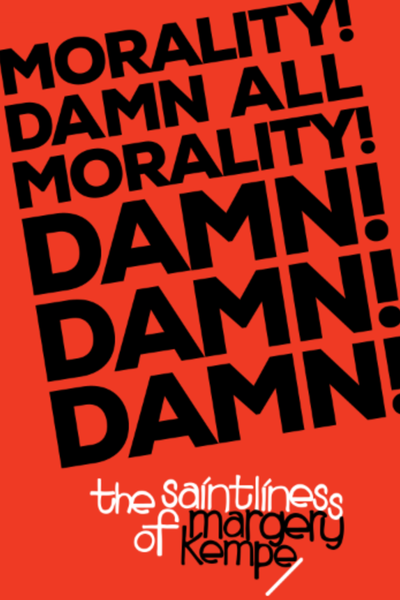Critic Reviews (19)
"The great Frances Sternhagen played Margery in the original Off Broadway production, in 1959, opposite Gene Hackman...The delightful news about Austin Pendleton’s uneven revival, is that the standard for those roles hasn’t slipped a millimeter...Nichols and O’Connell are delicious to watch...The play is most fun when it moves at high speed, and a languor overcomes the slack first act...Not all of the casting is as spot-on as the leads."
Read more
"Performance-wise, it’s all over the place...Nearly half of Wulp’s comedy is repetitive and, in this iteration, unfunny. After a long stretch of dullness, the play finds a spark of energy in its second act...There’s relevance here—something about our seemingly endless appetite for attention, or about the performative nature of holiness itself. But the play needs more beauty, more speed, more strangeness, more noise."
Read more
"Something much duller than it has any right to be...With no rhyme or reason to Margery's victories, defeats, and internalized lessons, these ebbs and flows feel as arbitrary as her whims. Director Austin Pendleton has set out to dust off this 60-year-old play. Dust, however, isn't so much the problem as is 60-year-old clutter that this production dances around in lieu of doing a thorough purge...Our title character feels similarly stranded in a narrative that renders her less than the sum of her parts."
Read more
"One can understand the attraction...Ultimately, however, Wulp's play is disappointing. The play aims for big laughs, but not all of the ludicrousness lands...Still, Pendleton has drawn fine performances from his nine-person ensemble...The production benefits from a spare design, allowing the focus to remain on the strong performances...Despite its flaws, 'Margery Kempe' is a reminder that a woman does not have to be a saint nor a sinner to change the world."
Read more
"In one of my first jotted notes, I wrote, 'Is this a comedy?' I never laughed, but at the performance I attended there were a few titters. So here’s the benefit of the doubt: Okay, 'The Saintliness of Margery Kempe' is a comedy, but a bad one...On how to shake out this dust-ridden screed, director Pendleton is at a complete loss...The pseudo-poetic lines the nine actors are handed—all but Nichols doubling, tripling, quintupling—prove insurmountable."
Read more
"Neither a Monty Python-esque spoof of a darker age nor an amusing character study of an obstreperous individual. It is merely a mildly facetious comedy about a self-centered woman whose personal dramas endear her to no one other than a long-suffering spouse. Overlong at two acts and nearly two hours, the spotty play benefits from the sort of good, solid acting that typically characterizes so many of Pendleton’s productions."
Read more
“Pendleton has wisely recruited Nichols to play the insufferable protagonist...Her performance as Margery is downright mesmeric. Wulp's script, though admirably literate, is overlong and overwritten; but the scenes in Act Two when Margery travels to Jerusalem are worth the price of admission...This comedy may be overlong, but it's dollars to doughnuts that Wulp's script and Pendleton's production afford a far more invigorating experience than any of those academic papers at the Kempe symposium in Oxford.”
Read more
"The cast list in the program reads more like a medieval phone-directory--even if there were no phones in the Middle Ages--than it does a dramatis personae. And then there's what happens to the characters during the course of the play which is as hard to say as it is to remember all of their names, let alone pronounce them."
Read more







